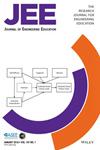Group diversity, diversity beliefs, and group processes in a design course for engineering students
Abstract
Background
The engineering profession has changed dramatically, and engineers today must work in diverse (multidisciplinary or international) groups. As such, practice in diverse student groupwork can be beneficial to develop all-round skillsets. However, simply mixing students with different backgrounds into one group is not always effective in engineering group projects.
Purpose
This study investigates how a diverse student group composition is related to group processes and, subsequently, group output, and also to see whether students' positive diversity beliefs influence the relation between diverse student group composition and group processes.
Method
Multilevel analyses were performed on 124 groups to analyze associations between diversity in group compositions (nationality and gender diversity), group processes (task elaboration, shared understanding of the task, and trust in the group), and group outcomes (performance and satisfaction), at both the individual and group level. Positive diversity beliefs were included as moderators.
Results
We found negative group-level associations between nationality diversity and shared understanding of the task and trust in the group. On the individual level, we found students' relative positive diversity beliefs to be positively associated with their perceptions of all group processes, which, in turn, were positively associated with perceived group performance and satisfaction.
Conclusions
A student group with different nationalities may encounter challenges in group processes, although we did not find direct implications for group performance and group-level satisfaction. Individual student perceptions of group processes were more clearly associated with outcomes than group-level aggregates. To facilitate diverse student groupwork, educators need to pay attention to and enhance students' awareness of the value of working in a diverse group.

 求助内容:
求助内容: 应助结果提醒方式:
应助结果提醒方式:


